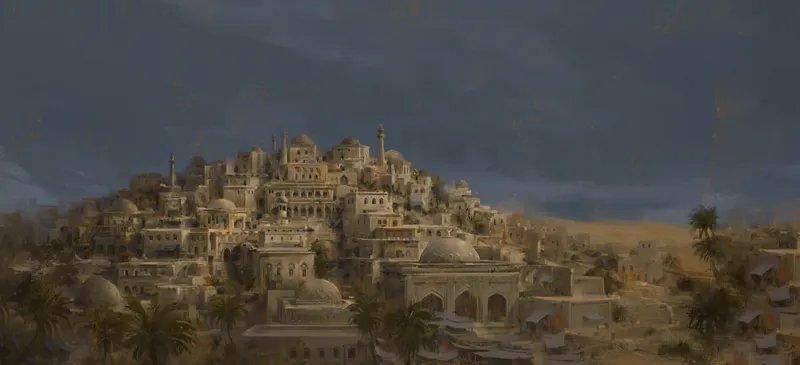Maghrebi Culture

Commands
The following command will set your culture to 'Maghrebi.'
The following command will change the culture of the specified county to 'Maghrebi.'
Information
| Name | Maghrebi |
| Culture ID | maghrebi |
| Heritage | Arabic |
| Ethos | Spiritual |
| Language | Arabic |
| Architecture | Arabic |
| Fashion | Abbasid |
| Coat of Arms | Arabic |
| Military Equipment | Arabic |
Overview
Maghrebi culture constitutes of the societies and traditions in the Maghreb region, which encompasses the countries of Morocco, Algeria, Tunisia, and Libya. This North African culture is characterized by its rich historical diversity and riveting fusion of Berber, Arab, African, and Mediterranean influences.
The influence of Berber, the indigenous people of North Africa, is especially vivid in traditional music and dance, alongside elements of Arab heritage and native African rhythms. Amazigh music, known as Berber music, and the Bedouin's musical genre, are the distinct tunes that are passed down through generations.
The same cultural diversity is seen in Maghrebi cuisine which is world-renowned for its unique spices and bold flavors. Couscous, tagine, and harira are some of the staple dishes. Many also indulge in sweetened mint tea, often considered a symbol of hospitality in the Maghreb.
Art and craftsmanship are other essential facets of Maghrebi culture. The intricate patterns of Berber jewelry, the detailed mosaics, the vibrant textiles and the stunning ceramics all demonstrate the artistic mastery of the region.
This is also a culture deeply influenced by Islam. Whether in architecture, as seen in the grand mosques designed with Andalusian and Ottoman influence, or in religious practices and celebrations, the spiritual devotion of Maghrebis has always been a key part of their identity.
In summary, Maghrebi culture, manifested through its music, food, art, and religion, offers a rich tapestry of diverse influences, creating a unique cultural heritage that continues to enchant the world.
Spiritual Ethos

Spiritual Ethos
While some cultures turn to war and others to worldly knowledge, this culture places its trust in the only constant throughout its history - the divine. Spirituality is the only way forward in a harsh and uncaring world.
- +10% Monthly Piety
- +15% Control Growth
- -20% Faith Creation and Reformation Cost
Each culture will have an ethos, which represents the core values, principles and attitude towards life that the culture has. It also determines which court types are available for kingdoms and empires.
Maghrebi Traditions
- African Tolerance
- Dexterous Fishermen
- Dryland Dwellers
- Mubarizun
- Xenophilic
Each culture will have several traditions, which represent the main customs of a culture and can grant various effects. A culture can have up to five traditions in the tribal era, with every additional era reached granting an additional slot for Traditions.
Maghrebi Architecture
Arabic
